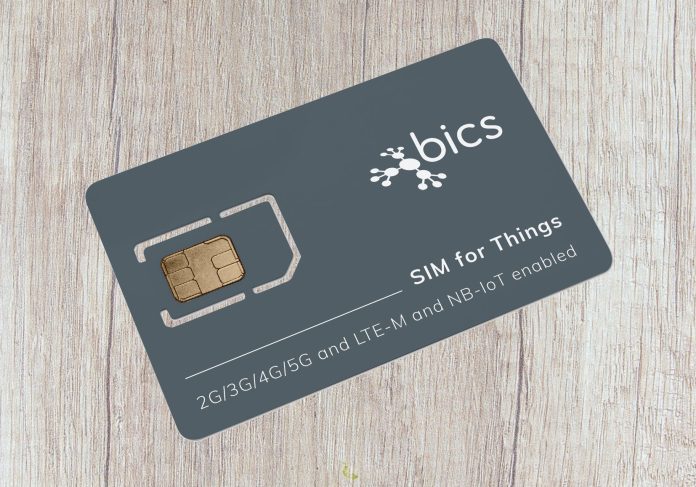Ireland-based private core network provider Druid Software has been recruited by Proximus to serve enterprise customers running private 4G and 5G installations. It has been working with the Belgian network operator, along with its international roaming business BICS, to test outbound roaming between public 5G SA networks, as well as to enable enterprises to roam between private and public network infrastructure.
Druid Software issued a missive last week that it was engaged in BICS’ new 5G Lab, announced in June, to optimize connectivity requirements between 5G SA networks, including for autonomous vehicles, smart cities, and smart factories. BICS introduced intercontinental roaming for non-standalone 5G in 2019, and is offering ‘borderless’ 5G data connectivity via its SIM for Things solution, introduced earlier this year.
The Irish outfit is providing the “actual production environment”, via its Raemis core platform, to Proximus for its private 4G and 5G network customers, explained BICS. Its 5G Lab uses a core setup from Massachusetts-based provider VALID8, it said; it has so far tested outbound roaming of data traffic going from BICS to Proximus in Belgium. The lab will test inbound roaming and “other scenarios, too”, said BICS.
The suggestion from Druid Software is that its Raemis core platform was the home network in the BICS testbed, with the private network subscribers roaming onto a simulated network on the BICs/Proximus side. It maintained in its press statement the Raemis platform had enabled a 5G data session for outbound roamers. The logic, it said, is that inter-network 5G SA roaming is “critical” for the ecosystem to meet the international needs of enterprise users.
Druid Software said: “It also established connectivity between the visited and home network via secured gateways (SEPP), hosted on BICS’ IPX network.” BICS said roaming between private and public network infrastructure, important for tracking shipments in and out of enterprise hubs, as well as for contiguous international connectivity as Covid-19 travel restrictions start to lift, will be included in its global SIM for Things solution.
A BICS spokesperson responded: “In this first stage we used a setup which would apply for telcos, operators, and private networks… This is extremely relevant [for roaming between public and private networks]; private networks want to be considered as one element and allow inbound roamers from one to the other. An example would be where you have private networks owned by the same entity, but located in two different cities or countries.”
Asked about how international 5G SA roaming on public infrastructure is important for “healthcare, industry, smart cities, ports, logistics, arenas, and blue-light services”, as prescribed in the original Druid Software release, BICS maintained: “It is important to view this as the whole story”. Enterprise IoT Insights responded that the new tests feel more like a dry-run for a service for connecting enterprise staff, rather than enterprise machines.
The question was asked whether the trials, at least, are more like an old-school enterprise connectivity story, rather than an Industry 4.0 piece. BICS responded: “Even as a private network, you still need to be able to connect to other public networks. For example, when a user or device moves outside the private network coverage, they need to be able to seamlessly connect elsewhere.”
And, what are BICS’ ‘big plans’ for private networks? Does BICS intend to offer a roaming SIM that allows enterprise employees to roam in and out of private networks, and onto public networks internationally? “We already have various proposals ranging from connectivity, sponsored roaming, local breakout, inter private-network roaming, and [the] BICS virtual enabler (MVNE), implementing BICS SIM cards and core networks,” said the spokesperson.
What about backend integration with enterprise 5G networks, where the Raemis platform comes in; can BICS say more on this? “The integration depends on the maturity and the part of the core network the enterprise implements. In some cases it is only about connectivity; in others, it is [about] integration. BICS is well positioned to accompany enterprises on this journey, whatever their needs may be,” it said.
The SIM for Things solution currently supports 5G device connectivity in Canada and Taiwan; there are plans to add up to 50 5G SA locations by the end of 2021. The same solution supports NB-IoT and LTE-M roaming for low-power IoT sensors in, respectively, 12 countries and 30 countries; BICS expects to have more than 20 roaming deals for NB-IoT by the end of 2021. It offers access to more than 700 general-purpose mobile networks worldwide, it claims.
Mikaël Schachne, vice president of mobility and IoT at BICS, said: “BICS is perfectly positioned at the heart of the communications system to facilitate 5G SA readiness, ensuring operators and enterprises are prepared for roll-out. The insights BICS provides, harnessed from our unparalleled expertise in carrying over half the world’s data roaming traffic, can help businesses to accelerate their 5G strategies and provide first-class offerings to their customers.”
Geert Standaert, chief technology officer at Proximus, said: “5G represents a revolution of mobile communications and will accelerate the advent of the Internet of Things. The conclusion of this trial marks a major advancement in Proximus’ 5G Standalone rollout, which will bring unprecedented advantages to both end users and businesses.”
Liam Kenny, chief executive at Druid Software, said: “We are really excited to be making this announcement today. The plans these partners have with our technology for Healthcare, Industry, Smart Cities, Ports, Logistics, Arenas and Blue Light Security Services are cutting edge and will lead to important efficiency gains for their customers.”
Chris Moore, vice president of sales at Druid Software, said: “Proximus, BICS and Druid have a wealth of experience in delivering cellular solutions and we are delighted to be supporting this 5G SA roaming use case.”

